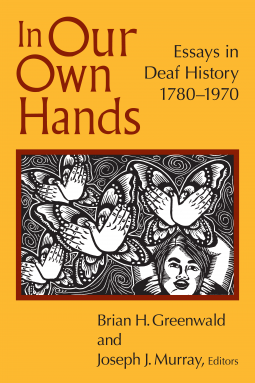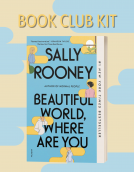
In Our Own Hands
Essays in Deaf History, 1780-1970
by Brian H. Greenwald and Joseph J. Murray, Editors
This title was previously available on NetGalley and is now archived.
Send NetGalley books directly to your Kindle or Kindle app
1
To read on a Kindle or Kindle app, please add kindle@netgalley.com as an approved email address to receive files in your Amazon account. Click here for step-by-step instructions.
2
Also find your Kindle email address within your Amazon account, and enter it here.
Pub Date May 30 2016 | Archive Date Mar 03 2017
Description
This collection of new research examines the development of deaf people’s autonomy and citizenship discourses as they sought access to full citizenship rights in local and national settings. Covering the period of 1780–1970, the essays in this collection explore deaf people’s claims to autonomy in their personal, religious, social, and organizational lives and make the case that deaf Americans sought to engage, claim, and protect deaf autonomy and citizenship in the face of rising nativism and eugenic currents of the late nineteenth and early twentieth century.
These essays reveal how deaf people used their agency to engage in vigorous debates about issues that constantly tested the values of deaf people as Americans. The debates overlapped with social trends and spilled out into particular physical and social spaces such as clubs and churches, as well as within families. These previously unexplored areas in Deaf history intersect with important subthemes in American history, such as Southern history, religious history, and Western history.
The contributors demonstrate that as deaf people pushed for their rights as citizens, they met with resistance from hearing people, and the results of their efforts were decidedly mixed. These works reinforce the Deaf community’s longstanding desire to be part of the nation. In Our Own Hands contributes to an increased understanding of the struggle for citizenship and expands our current understanding of race, gender, religion, and other trends in Deaf history.
Advance Praise
Greenwald and Murray’s book aims to connect the dots among significant themes in Deaf history. Readers are presented with new, fresh perspectives on how Deaf people during the 18th through 20th centuries used agency to engage in debates and activism about issues that impacted autonomy in their personal, educational, and social lives. A lesson we learn for the present and future is that preserving Deaf autonomy requires ongoing vigilance. I applaud the authors on this valuable contribution to Deaf history.(Glenn B. Anderson, University of Arkansas at Little Rock)
Greenwald and Murray have collected a trove of dazzling new work in Deaf Studies. With contributions from luminaries in the field as well as bright new scholars, and featuring essays that cast fresh light on enduring questions alongside others that blaze new trails, In Our Own Hands is a testament to the splendid vitality of the field.(Douglas C. Baynton, University of Iowa)
Available Editions
| EDITION | Paperback |
| ISBN | 9781563686610 |
| PRICE | $39.95 (USD) |
Links
Average rating from 2 members
Featured Reviews
 Reviewer 267123
Reviewer 267123
Such an interesting read. I have always been captivated by deaf culture. It's an amazing culture and reading this book gave me insight into the issues and history of the deaf community. It's so unknown to us in the hearing world that it's sad that we aren't sharing more between our cultures in the same country. A truly interesting and inspiring read.
Sara Nović has written some wonderful essays about Deafness, including this one about the history and significance of American Sign Language (ASL). Reading it opened my eyes to a blind spot in my knowledge - Alexander Graham Bell was against Deaf people? There's a movement called oralism? While I have a grasp of current issues (access to interpreting and captions, the debate over cochlear implants) I had no idea of what Deaf people were facing even fifty years ago. That's where In Our Own Hands comes in.
I do want to say straight up - this is an academic work. The chapters are written by different people and pull from research, doctoral papers, and lots of other things that add up to pages and pages of end notes. Some authors write engrossing narratives while others are more on the dry side. So this is a book to get your learning on.
And boy, did I learn. In the 1800s deaf people were referred to as "The Deaf and Dumb" which made no sense to me until I read this snippet from a 1845 article:
"The truth is, monkies [sic], and the lower animals, do not talk, because they have nothing to say. The tongue is moved by the mind, but where there is no intellect, there is no thought; and where there is no thought, there is no need of any language..."
So in their minds the deaf didn't speak because they were too dumb to need language. Cue jaw drop.
And that's just the beginning. There are essays about Deaf citizenship, Deaf education, how Deaf organizations formed and changed over time, and just how awful Bell was. Many come back to the ideas of agency, paternalism, and oralism (the belief that spoken language is inherently better than sign language).
I especially like the intersectionality many of the essays cover. One chapter is about Black ASL, another touches on Deaf religious history in the American South, yet another looks at Deaf societies and associations in Australia. The editors have made an effort to shed light on subjects that are less known and I appreciate it.
While In Our Own Hands is not for the casual reader it's a valuable look at Deaf history and activism that helped me navigate around a blind spot in my knowledge. Looking back I should have given myself permission to skim the chapters that were super dry or covered topics that interested me less, but all in all the read was worth it.
Readers who liked this book also liked:
L.M Montgomery
Children's Fiction, Comics, Graphic Novels, Manga, Teens & YA
We Are Bookish
General Fiction (Adult), Literary Fiction, Women's Fiction





